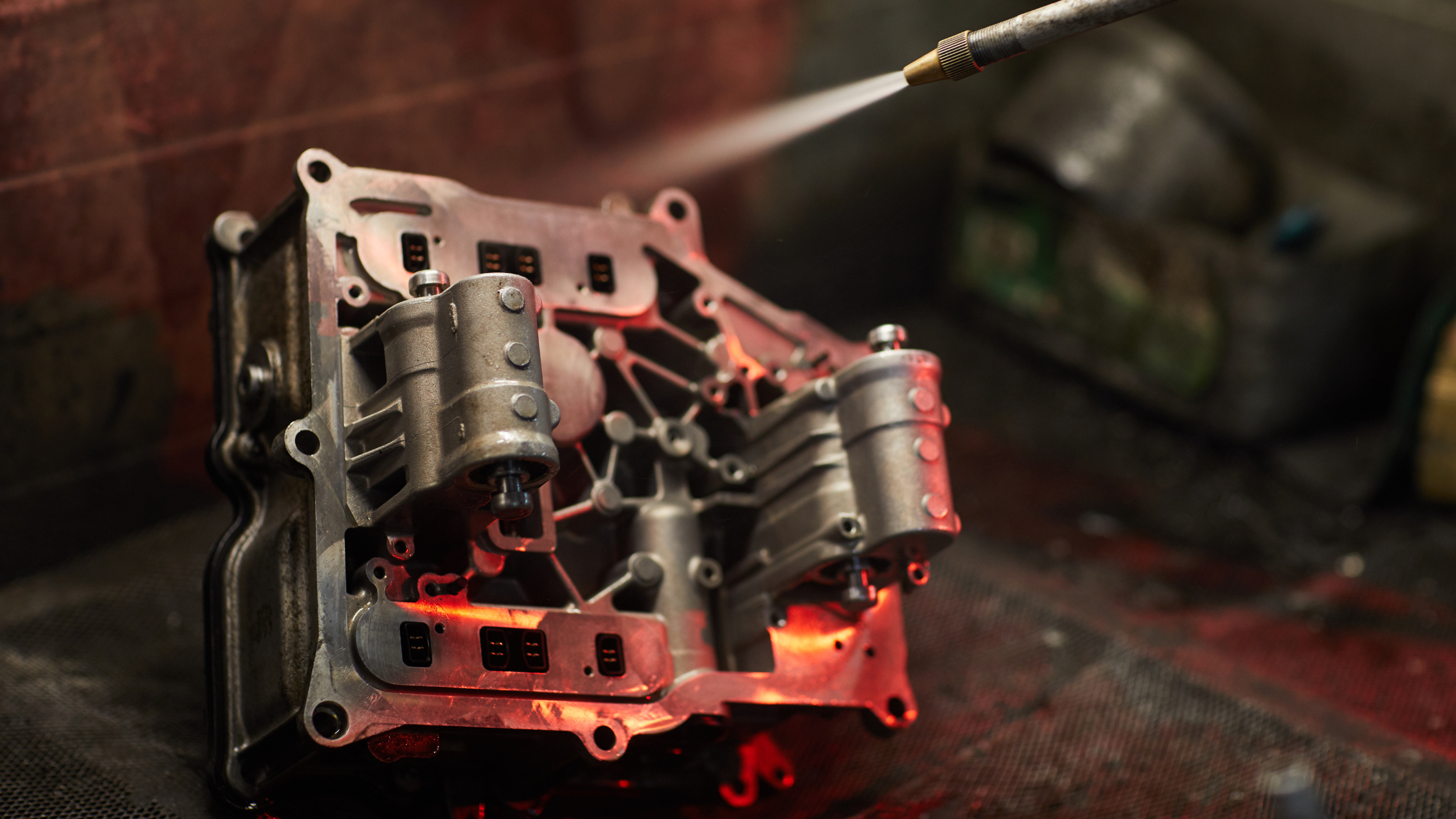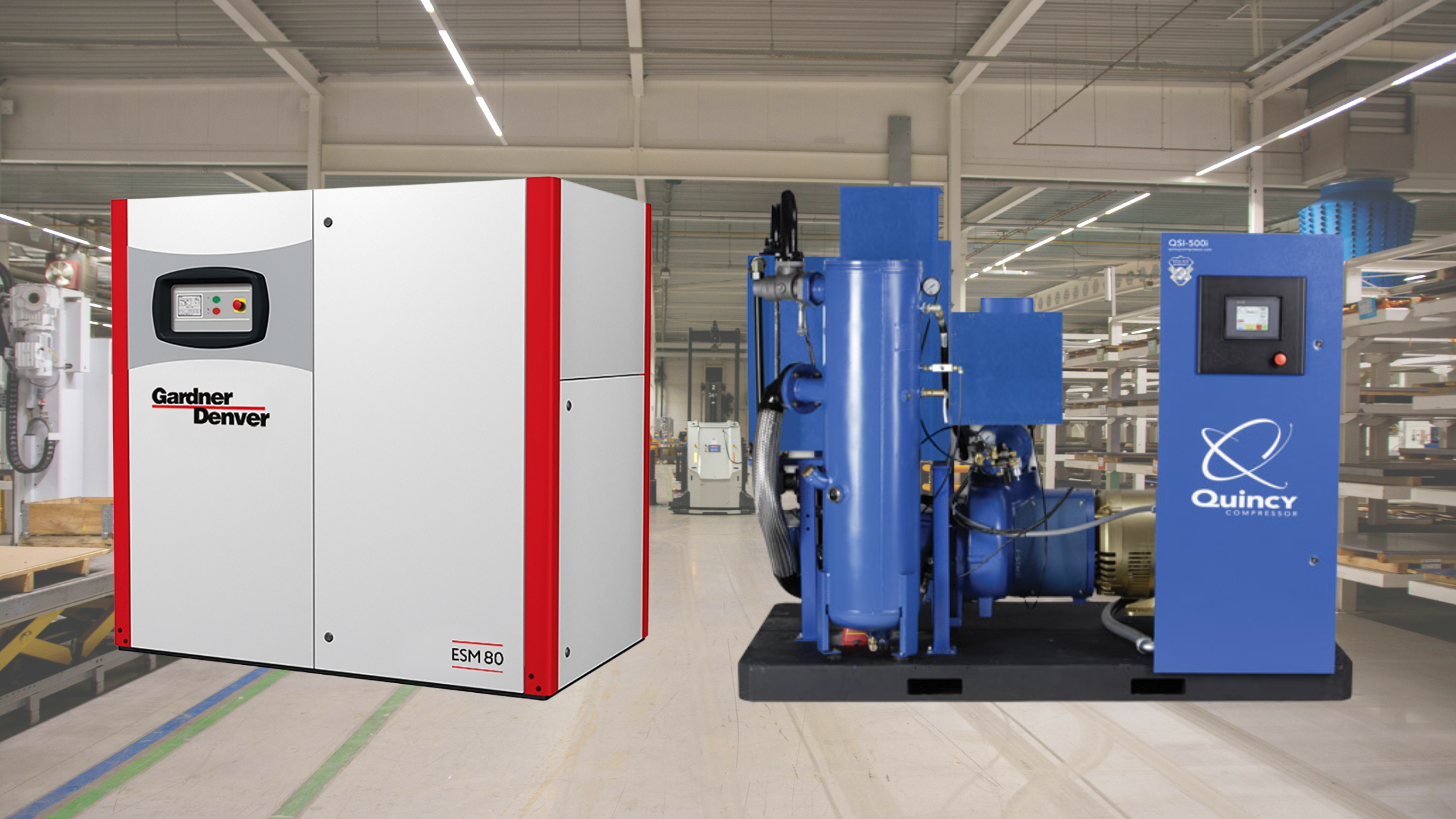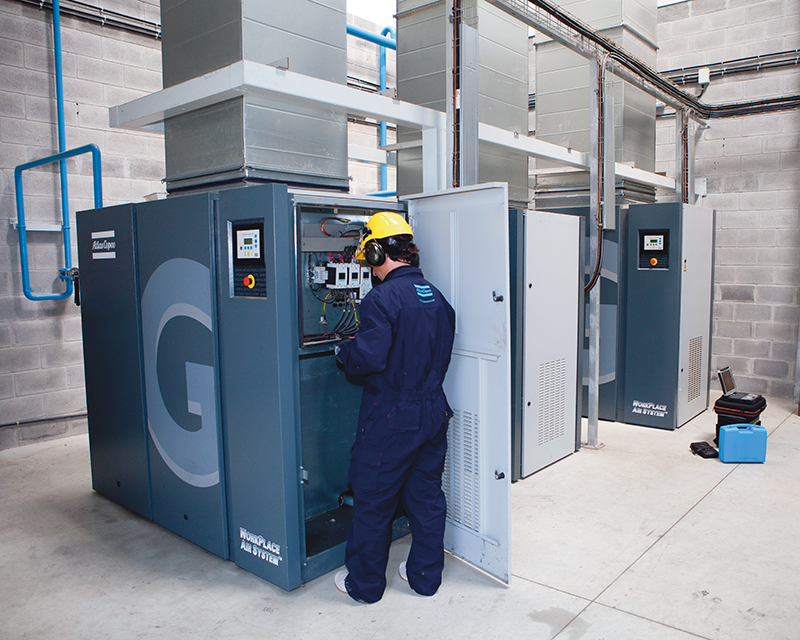As lightweight, mobile air solutions, portable air compressors can be an advantageous option for many on-site industrial, construction, drilling and agricultural applications. This blog will explore the benefits of portable air compressors, discuss four common applications for these durable, convenient and versatile compressed air suppliers and provide input on how to select the best portable compressor for the job.
Why Use a Portable Air Compressor?
Whether the unit is a portable air compressor or a stationary, dedicated compressor, the main function of any air compressor is to provide pressurized air to power air-operated industrial equipment in manufacturing facilities or on various job sites.
However, portable air compressors are usually the best option for the following situations:
- In environments where there is no alternative power source
- To support outdoor applications
- When job sites are spread out and an air compressor must be moved to different locations on an regular basis
- As a backup solution for a stationary compressor to prevent downtime when the dedicated unit requires service.
In addition to serving remote and outdoor locations, portable air compressors, offer several advantageous features, including:
Durability: Heavy-duty portable air compressors must be able to withstand the elements, including, hot, dry, wet, frigid, dirty and dusty conditions so they are sturdy pieces of equipment built with high-quality components, such as reliable engines, tough tires and premium air filters, that promote reliability when exposed to extreme environments. For situations where fire or explosion risks exist, they can be fitted with spark arrestors and intake shut-off valves, as well.
Performance: Although they are designed to be mobile, portable air compressors are designed with high-quality, reliable components so that they offer the same level of performance that you would expect from stationary models. Further, many are capable of full-day operation without needing to recharge.
Multiple power options: To best suit a variety of applications, these mobile air solutions are available as either portable gas-powered air compressors or electric models, which require an on-site power source, so users have multiple options to meet their job site requirements.
Flexibility: Portable air compressors are available in a range of sizes from compact to larger, heavy-duty models to suit the needs of almost any application. They may also be offered with multiple engine options for speed, horsepower and variable speed drives so different pressures can be applied for various applications. And, because they are mobile, they can be moved around easily to different job sites or power various air-operated pieces of equipment at the same location.
4 Applications for Heavy-Duty Portable Air Compressors
Thanks to their high-performance capabilities, durability and versatility, portable air compressors lend themselves to a variety of applications, including general manufacturing, construction, drilling and agriculture.
Below we will explore some surprising ways in which high-quality portable air compressors can be used.
Manufacturing: In manufacturing plants, a portable air compressor may serve as a back-up unit for a facility’s dedicated air compressor in an effort to avoid downtime in the event that a repair is needed on the stationary unit. However, they may also be used in situations where an additional air compressor is needed to meet seasonal or unexpected demand or to temporarily power air-operated equipment in remote locations or at customer sites.
Construction: Aside from the application of powering air-operated tools such as nail guns, heavy-duty portable air compressors can be used at construction sites to support large-scale equipment such as jackhammers to break up rocks and pavement and for drill construction activities such as foundation drilling, forepoling and powerline construction.
Drilling: Heavy-duty portable air compressors may also be used to power equipment for drilling in a variety of industries. Geotechnical drilling applications include exploratory and sample drilling, horizontal directional drilling and non-exploratory drilling. They are also widely used in the on-shore and off-shore oil and gas industry applications for oil drilling and for installation of critical equipment and infrastructure.
Agriculture: Portable air compressors are widely used throughout the agricultural and farming industry to transport feed and operate crop spraying equipment and dairy equipment. Because they are mobile and require no energy source, portable gas-powered air compressors can be moved among fields and from area to area to service multiple applications at the same location.
How to Select the Best Portable Compressor for the Job
To select the best portable compressor for an on-site project, it is essential that the unit meets the needs of the application and is durable enough to withstand the environmental challenges, while offering optimal performance.
Important selection criteria for portable air compressors include:
- Power source: The power source for a portable air compressor will be dictated by the availability of a reliable on-site power supply. An air compressor electric portable unit can be used where electricity is available, but a portable gas-powered air compressor will be necessary for sites where this is not an option.
- CFM requirements: A portable air compressor must be able to reliably, effectively and efficiently drive the equipment that will be used on site. Choosing a model that meets the requirements of the tool or equipment with the highest CFM requirement will ensure that it successfully meets the needs of the application.
- Portability: A portable air compressor should be easily transported from location to location. Portable air compressors may be small and lightweight enough to be moved via a delivery truck, while large, heavy-duty portable compressors for construction and drilling applications may be towable.
- Duty capabilities: Heavy-duty portable compressors are well suited for challenging environments in construction, oil and gas and drilling as these portable air compressors are constructed for specialized applications.
- Durability: When exposed to elements or challenging environments, a portable air compressor must be designed and constructed for the conditions. Ensure that components can withstand any extreme temperatures and terrains. Look for high-quality parts, such as engines, wheels and filters.
- Safety: If the portable air compressor will be used where there is a risk of fire or explosion, be sure that it can be adapted to perform safely in the application. A spark arrestor and intake shut off valve may be necessary.
Call on the experts at HTE, a Tavoron company, for assistance finding the best portable compressor for your project or site.



